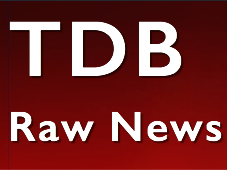Headline: Record bank profitability causing long-term damage to the economy
“We already know our banks are amongst the most profitable in the world. Today, Australian-owned ASB just got even more profitable.”
ASB Bank’s record profit announcement today highlights the long term harm excess profitability and high foreign ownership is doing to the New Zealand economy, the Green Party said today.
ASB Bank today announced a record statutory net profit after taxation for the year ended 30 June 2013 of $705 million, up from $685 million last year.
“ASB’s record profit making is coming at the expense of the rest of the economy and is making our current account deficit worse,” said Green Party Co-leader Dr Russel Norman.
“We already know our banks are amongst the most profitable in the world. Today, Australian-owned ASB just got even more profitable.
“Five years of record profits should be signalling to the Government the need for reform in this key part of the non-tradable sector.
“The New Zealand economy has a massive imbalance with the rest of the world. Every year we have to borrow, or sell assets, to cover a ten billion dollar current account deficit.
“The big foreign owned banks are making the current account deficit worse in three ways: Firstly, they are exporting their massive profits offshore to their Australian owners. Secondly, the banks are using offshore funds to pump up the housing asset bubble, increasing national indebtedness and hence the interest payments offshore. Thirdly, the banks are adding costs onto those businesses that export or compete with imports.
“Someone has to pay for New Zealand to have some of the most profitable banks in the world, and that someone includes New Zealand businesses in the tradable sector who are trying to help New Zealand pay its way in the world.
“This is not a smart way to run an economy.”
The Green Party has proposed a number of solutions to address the lack of competition in the banking sector and the high degree of foreign ownership.
“One solution to the problem is to build up our New Zealand-owned banks to stem the flow of profits offshore,” Dr Norman said.
“Currently, New Zealand-owned banks make up only six percent of our banking sector.”
“We can increase competition in our banking sector by strengthening Kiwibank and other New Zealand-owned banks and financial institutions such as credit unions.
“A strong Kiwibank is an integral part of a smart, green economy.
“By injecting capital into Kiwibank and allowing it, in time, to become the Government’s banker, we can increase its capacity to compete fairly with the much bigger Australian banks.
“The banking sector is the lifeblood of the New Zealand economy. It’s important we get it right so that all businesses can prosper, not just the big four foreign-owned banks.”
—






Actually, there’s only one way to do that – ban foreign ownership. It is, after all, bad for NZ and we don’t need it as it bring nothing of value to our society. All achieves is to turn NZers into serfs for the foreign owners.
As it stands the banking sector is the vampire that is sucking the lifeblood out of NZ. This needs to change and the way to do that is to start to view the banking sector as a necessary service that should be run as a social expense – in other words, as a state monopoly that is supported by taxes.
Comments are closed.